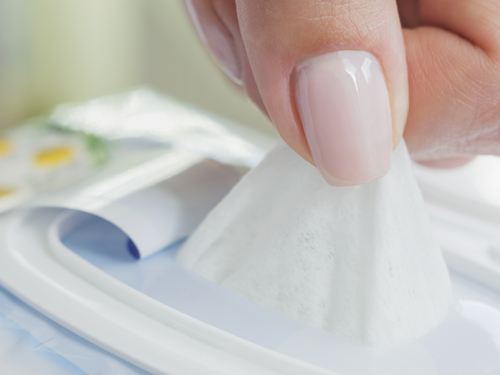Wet wipes are very useful in caring for babies and also in freshening up after a sporting event like a marathon or rugby game. Many think these wipes have a negative impact on the drainage system and which could result in blockages. The water companies in Britain consider wet wipes as the reason behind millions of pounds’ worth of drainage unblocking costs. These water companies are asking Trading Standards to instruct wet wipe companies to abstain from labeling them as flushable- when in reality, many are not.
These make-up wipes, baby wipes or wet wipes are responsible for a staggering 50% of the sewer blockage incidents in the country. These wipes fail to disintegrate once they’ve been flushed into a sewer system. Drainage unblocking companies argue that these wipes are a major cause regardless of the flushable label left by manufacturers. Additionally, it is also believed that flushed wipes can attract legions of rodents like rats which will have a further negative impact on the drainage systems.
One of the main reasons why wet wipes fail to disintegrate as quickly as expected is due to how they are manufactured. These wipes are largely made from polyethelene, polyester, fibres and cotton. The use of these materials is the main reason why it could take months for wet wipes to decompose or disintegrate. For wet wipes to be flushable, they’ll have to be made from materials that can easily and quickly disintegrate.
There are two sides to the argument of using wet wipes in toilets. As stated above, those against the use of flushing wet wipes down the toilet believe it’s a huge cost to home owners due to drain unblocking and also costing water companies a total of £12m in blockages. On the other hand, there are people who believe that the use of wet wipes is more hygienic than toilet paper. This argument is on the back of a revelation from doctors stating that wiping along with toilet paper could leave traces of faeces on our behind and could also cause health problems such as urinal tract infection and severe anal issues. These health experts further argued that toilet paper does not remove but rather moves faeces and this has led to countries like Japan, Greece and Italy using bidets to wipe their behinds.
This piece is not focused on a debate between the use of wet wipes or toilet paper but the actual flushing of these wipes. As the flushing of wipes is considered one of the main reasons behind drainage blockage in the UK, countless parties are encouraging individuals to desist from flushing these items. In the same regard, when using hired portable units at events or construction sites, it is vital baby wipes are not flushed in these facilities and are appropriately disposed in the provided waste reservoir. In the case of portable toilets, the tanks are emptied on a regular basis.




